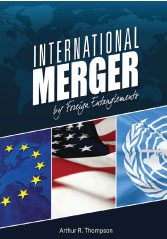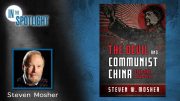
“In whose hands are iniquities: their right hand is filled with gifts.” — Psalms 25:10
This astute observation of human interaction by King David in the Old Testament is one to keep in mind whenever a politician promises anything — especially under the guise of “free trade.” And with the Obama administration and its Wall Street allies now pushing hard to enact the Trans Pacific Partnership (TPP), the Transatlantic Trade and Investment Partnership (TTIP), and a host of other dangerous “trade” proposals, it is more urgent than ever that we heed this warning.
“Free trade” and “partnerships” are wonderful sounding phrases. They conjure images of utopia, where runaway economic growth, peace, and prosperity are the norm rather than the exception. These are false images, of course, but are widely believed nonetheless because this is what every politician who promotes a trade agreement always promises. One could be forgiven for wondering how it is that the United States is currently involved in a plethora of trade partnerships, agreements, and treaties yet paradise is not upon us. And since these agreements do not seem to have bettered the state of the nation, one could also be forgiven for wondering why the United States enters them in the first place,
In answer to these musings, Arthur R. Thompson, CEO of The John Birch Society, has provided a great service to the concerned patriot by writing International Merger by Foreign Entanglements, a compact educational book of supreme importance. International Merger is designed as a primer about why foreign trade agreements are detrimental to our sovereign health. It also provides a necessary foundation in constitutional history and foundational political-economic theory.
By interspersing the piece with quotes from our Founding Fathers, as well as some generally accepted wise men, Thompson illustrates that the foreign entanglements born of these so-called free trade agreements are not only strictly against constitutional principal, but also devoid of basic wisdom. He asks the reader to keep in mind the famous Lord Acton quote, “Power tends to corrupt, and absolute power corrupts absolutely.” He also employs Mark Twain’s observation that “the only difference between reality and fiction is that fiction needs to be credible.”
The Twain quote is particularly important to the discussion of foreign entanglements because there are many naïve but well-meaning people who assume our political leaders always have the nation’s best interest at heart. These credulous naifs find it impossible to believe that American officials would be so nefarious as to use trade agreements to sacrifice our nation’s sovereignty to regional and global institutions. Or they argue that achieving such a goal would be so difficult and complex that it is unlikely ever to happen.
But, doubters notwithstanding, the movement toward “global governance” (i.e., all-powerful world government) is happening — before our very eyes. And so-called trade agreements are a key driving force in this subversive movement.
To help readers overcome their disbelief, Thompson offers motive: the lust for unrestricted power. And in International Merger the evidence is there for all to see. Thompson provides the evidence that “free trade” agreements have precious little to do with commerce and that “peace” partnerships have precious little to do with peace. Their main thrust is to consolidate power in ever larger and more powerful entities and to move ever further from the economic doctrine of “subsidiarity” (of which federalism is a form), the doctrine that says matters ought to be dealt with by the most local, decentralized authority possible. “Free trade agreements” such as the North American Free Trade Agreement (NAFTA), and even larger trade treaties such as the World Trade Organization (WTO), have set up judicial systems that, alarmingly, subject U.S. citizens — and the peoples of all nations involved in these treaties — to rulings of courts other than their own. These are not merely international agreements but supranational agreements. They heavily erode national sovereignty and rush us further along the road toward a United States of the World.
The world has already witnessed progression along this path, from regional trade agreements to a previously non-existent regional government. All we need to do is look eastward to our European brothers. Thompson documents how the European Union (EU) began as a seemingly benign free trade agreement concerning coal and steel. It soon morphed into an ever more complicated and ever more consolidated entity until, lo and behold, the European Commission and other EU structures in Brussels have become the central authority of all of Europe. On our side of the Atlantic, the power brokers are pursuing the same bait-and-switch strategy via the North American Free Trade Agreement. NAFTA was created to provide the framework for the creation of the North American Union, Thompson shows, in much the same way that the European Coal and Steel Community (ECSC) and the Common Market were created to launch European merger.
Moreover, the regional groupings are themselves to be grouped together for the purpose of building world government brick by brick. If this design sounds too fantastic to believe, then this reviewer encourages you to read Art Thompson’s book, where ample documentation is provided.
Thompson also documents some awkward situations the United States and its businesses are put in by the growing and deepening foreign entanglements. How is a private company expected to compete against a state-run company with all the unfair subsidies that entails, particularly when the American company is heavily taxed and regulated? How are we to deal with issues of wartime decisions when countries we have agreements with have conflicting agreements with other countries?
Our so-called free trade policies have created a domino effect. Outsourced jobs affect the unemployment rate in the United States, which affects welfare payrolls, which affects deficits, which affects inflation. All of this serves to lower the U.S. economy to bring it in line for piecemeal merger with less robust economies of other nations in “free trade agreements.” It allows for more seamless “integration” of a weakened United States with other nations. To assist this merger process, the Federal Reserve has turned on its magic money machines to create the illusion of prosperity. Which is why Wall Street has been flying so high, after having been brought so low. There is no genuine recovery based on strong market fundamentals, merely a frothy stock market pumped up with more fiat money bubbles that are doomed to pop. Much (though not all) of this stems from the international entanglements spun by the Fed with the International Monetary Fund, the European Central Bank, and other central banks. Thus continues the vicious cycle of government “attempting” to fix problems, making them worse, demanding more consolidation of power to fix the problems, making them even worse, demanding still more consolidation of power for the greater problems, et cetera ad nauseam.
The evidence in International Merger should be enough to convince the reader that “free trade” agreements are neither free nor primarily concerned with trade.
The book is a quick read at 145 pages. The language used is graciously unlike the obtuse and bloated legalese found in trade agreements. Conciseness and clarity are essential for an educational treatise of this nature, and Thompson does a professional job of keeping things simple enough for those just being introduced to the complicated ideas presented in the book without making it dull for the well-educated. Longtime readers of The New American will be well acquainted with most of the ideas and many of the facts presented in the book, but Thompson did not write this primarily as an historical textbook. He wrote it as a call to action, and he highlights the immediacy of the situation. According to Thompson, “Negotiations [for the Transatlantic Trade and Investment Partnership (TTIP)] between the United States and the European Union began on July 8, 2013.” The TTIP is in the works now.
International Merger also has a very concise and timely chapter on Agenda 21, the global regulatory monstrosity launched at the UN’s 1992 Earth Summit in Rio de Janeiro that envisions micro-regimentation of the total environment of the entire planet: eco-tyranny in the name of “sustainable development.”
Thompson gives sound advice to his readers by directing them to JBS.org to find various resources for fighting this encroachment on our rights and liberties. More importantly it is nice to know that a book is on the shelf that one can hand to an interested friend. This is not just a book for Americans either. All patriots across the globe who love their countries and love their cultures would do well to read this book because we all have a common enemy in internationalist socialists who hate national sovereignty and find patriotism a very annoying concept. People throughout the world must be informed that when their political leaders come bearing gifts with their right hands, they should watch for the knife in the left.
International Merger by Foreign Entanglements, by Arthur R. Thompson, Appleton, Wisconsin: The John Birch Society, 2014, 145 pages, paperback.



